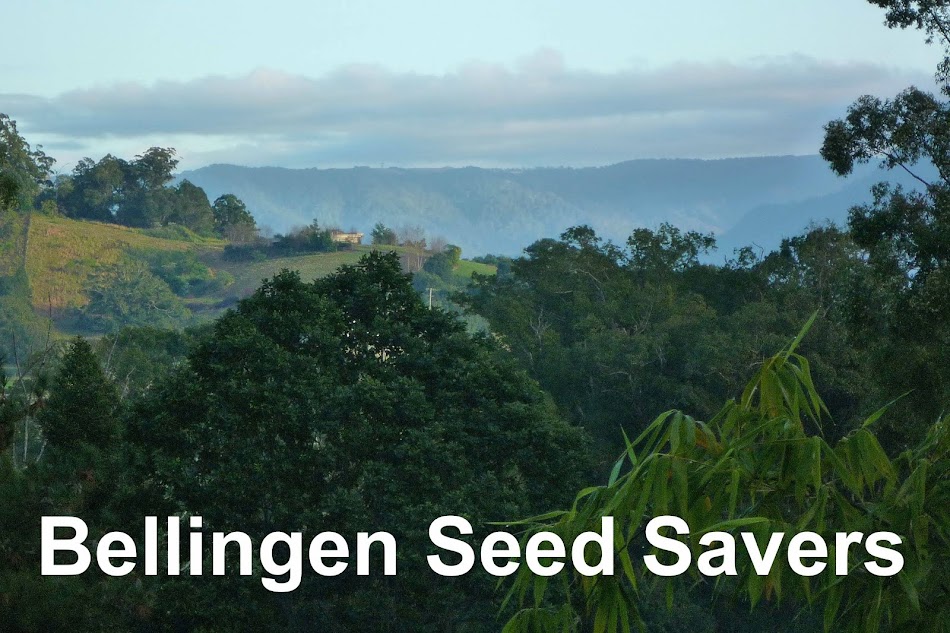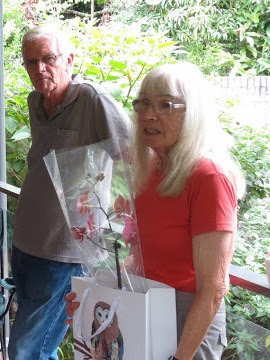Established over ten years David now has a forest with paths under the tree limbs. About 30 Seed Savers attended and enjoyed the relaxed stroll on the paths, the food, the chat and the seed/plant sharing.
"Thanks to the 27 members that came - quite the eclectic crowd. A 2nd,
then 3rd table, added, groaning under the weight of earthly delights. Fortunate timing brought us glorious weather, to celebrate the shortest day that heralds lengthening ones to come. A group headed off to marvel at the latest goings on the garden, David full of wise musings and cheeky wit as usual.
Others mingled by the cheery fire, sharing tips and swapping yarns. A wonderful winter's day.
David's
garden had plenty of trees carrying fruit (see photos). He had enough
citrus to make a small mountain. There were also at least three
different nut trees that had fruited / nutted recently. There was a
macadamia, a candle nut and a Bunya. David had been given the Bunya in a
pot and it is now a very impressive specimen. A seedling under the tree
was passed on to another member to raise the next generation. Another
member present also has Bunyas that are dropping cones. He has
successfully gone from seed to seed!"
 |
| Avocado |
 |
| Red Grumichama |
 |
| Pepino |
 |
| Come on Dad. |
 |
| David and Sandy consult. |
 |
| David and Sandy consult. Don looks on. |
 |
| Now what is that tree? Here is the bean pod. |
It turned out to be
Black
Bean, Moreton Bay Chestnut or
 |
| Gillian digs some of David's strawberries |
 |
| Chatting and eating around the log fire. |















